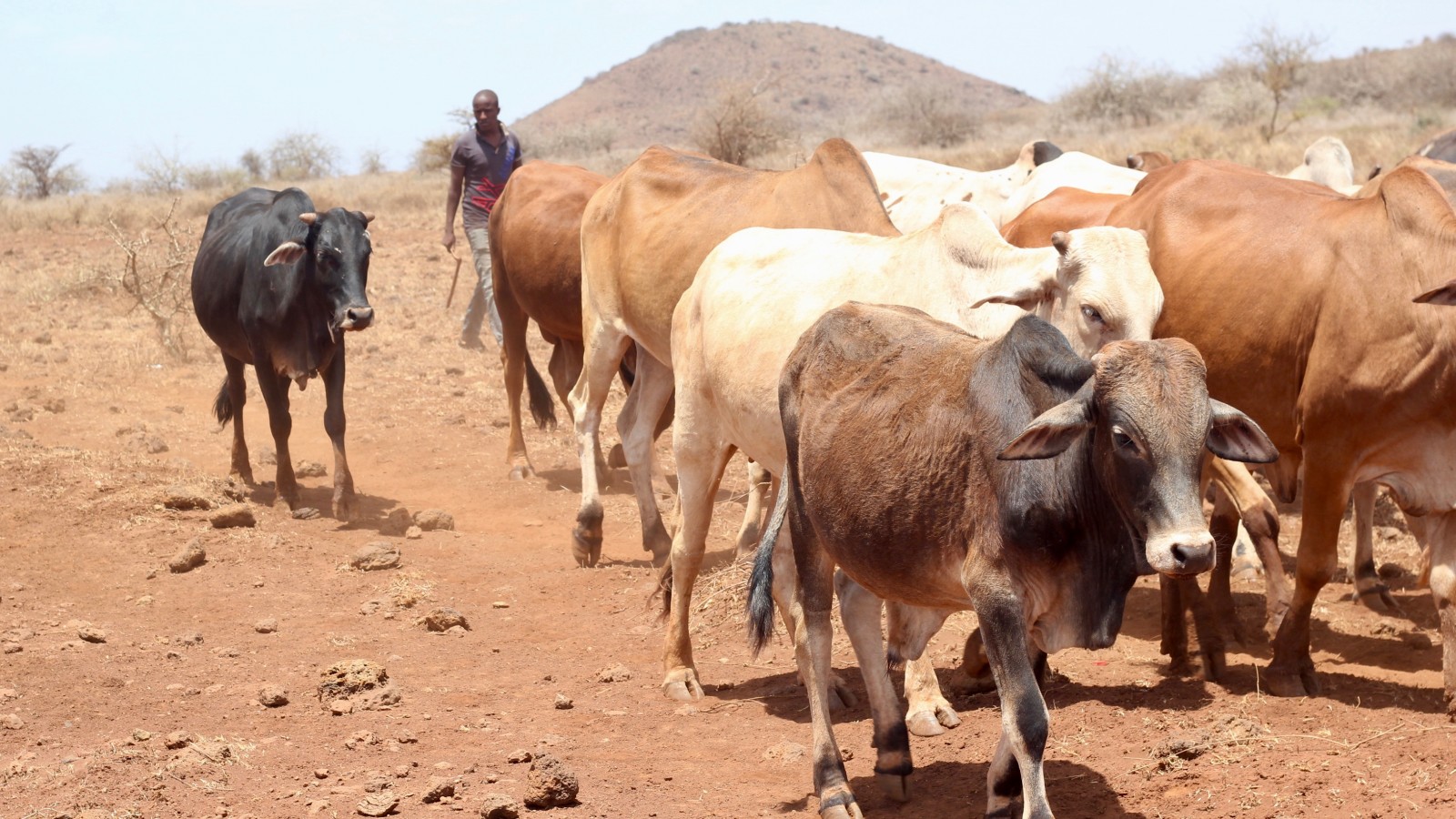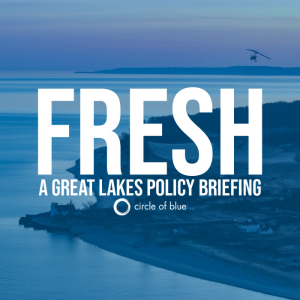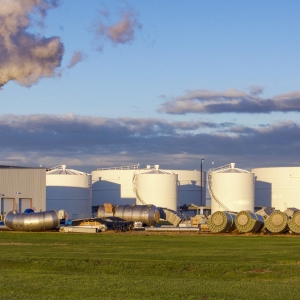The Stream, November 1, 2023: Fishers and Scientists Work to Save South America’s Largest Body of Water, Overwhelmed by Oil and Algae

Pastoralists in northern Kenya. Photo © Kandukuru Nagarjun/Flickr
YOUR GLOBAL RUNDOWN
- Using drones, oil and political leaders in Abu Dhabi are planting millions of mangroves that will capture carbon dioxide from the air.
- Battered by a five-year drought, Kenya’s Indigenous and pastoralist Turkana peoples have no choice but to fish in a nearby salt lake.
- Anglers and scientists in Venezuela are coming together to clean Lake Maracaibo, South America’s largest lagoon, currently overwhelmed by oil and algae.
- Weeks away from the global COP28 climate conference, the World Wildlife Federation has urged world leaders to focus specifically on fresh water.
Facing the country’s worst drought in 50 years, the Ecuadorian government will enforce power cuts to stretch hydroelectric output.
“We have to be honest with the country, generation is not enough to meet demand. As a precaution against a collapse in power we have to make specific and temporary cuts.” — Energy Minister Fernando Santos.
It’s been 50 years since Ecuador experienced droughts as extensive as those that now pervade the country, Reuters reports. Attributed to El Niño, the lack of precipitation is notable in the southern and eastern regions, where 90 percent of its hydroelectric dams operate. In order to conserve energy, the government is mandating daily power cuts. They last four hours “in the Sierra and Amazon regions and three hours a day along the coast,” Reuters reports. Needing an additional 460 megawatts, Ecuador will also import electricity and natural gas.
— Christian Thorsberg, Interim Stream Editor
Recent WaterNews from Circle of Blue
- New Mexico’s Largest Fire Wrecked This City’s Water Source — Era of megafires endangers water supplies in American West.
- Hotspots H20: Israel Pledges to Resume Gaza Water Deliveries — Residential areas in Gaza are targeted as the humanitarian cost of the ‘total siege’ rises
The Lead
Lake Maracaibo, technically a brackish lagoon, is one of earth’s oldest bodies of water and the largest in South America. But to stand on its shores today in northwestern Venezuela is to witness a vast expanse of green and black stillwater. Oil pollution and algae — caused by industrial spillage and chemical runoff — have overwhelmed the ecosystem, causing some to say that Maracaibo has passed the point of no return and is unable to be saved.
But despite its poor condition, all hope is not lost for Maracaibo. Anglers, scientists, and other people continue to come to its shores with rakes, buckets, and gloves to remove thick layers of oil and collect algae and other gunk, the Guardian reports.
More than 2,000 fishers in more than 400 boats have come to the lagoon to routinely clean its waters. Rotating shifts ensure that volunteers are present each day; maintaining clean waters, they say, is necessary for the sake of their livelihoods. Together, they’ve removed “more than 156.5 tonnes of plastic,” according to the Guardian.
University scientists have also been drawn to the cleanup cause. Implementing a seemingly odd yet effective technique — using “human and animal hair to collect hydrocarbons” — researchers have involved and educated private citizens along the way.
The government, following citizens’ lead, is now getting involved, too. After auditing — and closing some — local businesses for environmental standards and dumping, they have pledged to reopen four water processing plants “in the near future.”
This Week’s Top Water Stories, Told In Numbers
10,000,000
Mangrove seedlings that leaders in Abu Dhabi, United Arab Emirates, are hoping to have planted by 2030 in an effort to combat climate change, which is driven overwhelmingly by the burning of fossil fuels. Reuters reports that the project is a partnership between the Abu Dhabi National Oil Company and a UAE-based technology firm. To speed up their initiative, the two companies are employing drones to drop millions of seeds from the sky, though only about 40 percent of the planted seeds survive. The United Arab Emirates is one of 20 countries in the world without any rivers. However, they do have wadis — “permanently or intermittently dry riverbeds” — which the robust mangroves will help shield and clean. The country will be the host of the COP28 climate conference this coming November and December.
20
Millimeters of rain that fell last year in the Turkana peoples’ homelands in northwest Kenya, where a five-year drought continues to decimate their way of life, France24 reports. The Turkana, who for generations have been shepherds and pastoralists, depend wholly on livestock for their economy and food. But a dramatic lack of rain has upended their cyclical, seasonal lifestyles. As famine persists, many people now only eat when the government sends emergency food rations into their arid home. Some have abandoned their shepherd lifestyles for fishing, subsisting on the small fish which live in a nearby, salty lake.
On the Radar
As world leaders prepare for the COP28 global climate conference, which begins in the United Arab Emirates on November 30, the World Wildlife Federation has released a report urging countries to specifically focus on solving freshwater problems, Mongabay reports. The report estimates the total global value of water at $58 trillion — 60 percent of the global GDP — and clarifies a need for urgency: Over the past 40 years, the world has lost one-third of its wetlands; by 2050, “around 25 percent of the river’s water could be lost”; and rivers, lakes, and wetlands have absorbed about 80 percent of the world’s wastewater.
In context: The $58 Trillion Value of Water
More Water News
Amazon Dolphins: Sixteen more freshwater dolphins have been found dead in the Amazon River, which continues to reckon with record-low water levels and high temperatures, Reuters reports. Since September, 178 river dolphins have died.
Olive Oil: Ongoing drought in Span, Greece, and Italy — which is projected to continue — has affected growers and their crop prices, including those of olive oil, the New York Times reports.
Brett writes about agriculture, energy, infrastructure, and the politics and economics of water in the United States. He also writes the Federal Water Tap, Circle of Blue’s weekly digest of U.S. government water news. He is the winner of two Society of Environmental Journalists reporting awards, one of the top honors in American environmental journalism: first place for explanatory reporting for a series on septic system pollution in the United States(2016) and third place for beat reporting in a small market (2014). He received the Sierra Club’s Distinguished Service Award in 2018. Brett lives in Seattle, where he hikes the mountains and bakes pies. Contact Brett Walton





Leave a Reply
Want to join the discussion?Feel free to contribute!